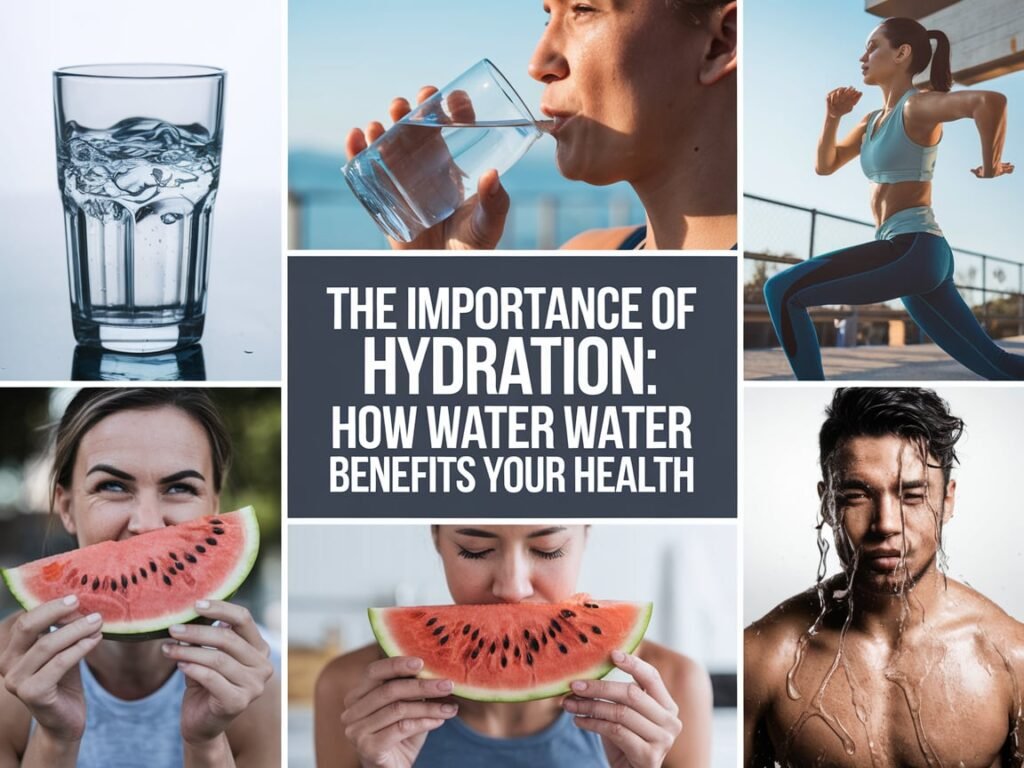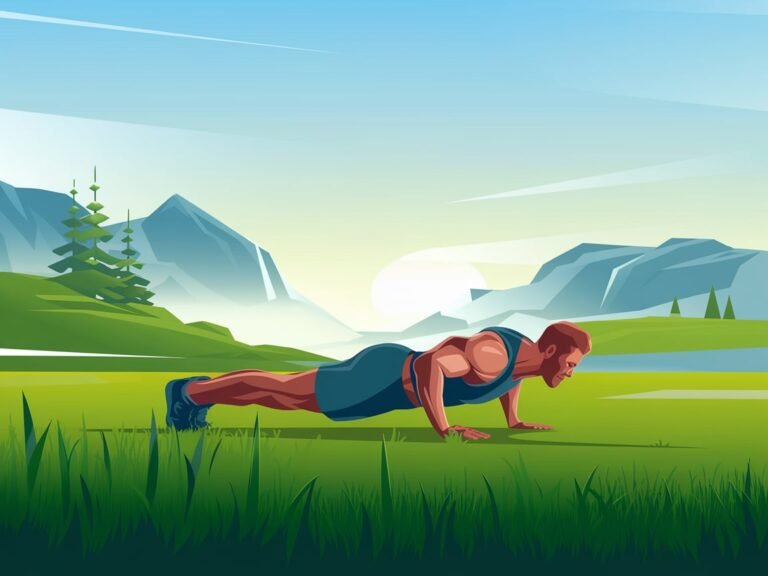
"Stay hydrated, stay healthy! Discover the powerful benefits of drinking water and how proper hydration can boost your energy, improve your skin, and enhance your overall well-being."
Meta Description:
Discover the crucial role hydration plays in your health. Learn how drinking water affects your body, boosts energy, and improves your overall well-being.
The Importance of Hydration: How Water Benefits Your Health

Water is essential to life. It makes up about 60% of the human body and is involved in nearly every bodily function. Despite its importance, many people neglect proper hydration, which can lead to a range of health issues. In this article, we’ll explore the many ways hydration impacts your body and why it should be a top priority for overall health.
1. Why Hydration Is Crucial for Your Body

Your body depends on water for a variety of reasons:
- Regulates body temperature: Water helps regulate your body temperature, especially during physical activity or in hot weather.
- Supports digestion: It aids in the breakdown of food and absorption of nutrients.
- Removes toxins: Water helps flush out toxins from the body via urine and sweat.
- Lubricates joints: Proper hydration ensures that your joints remain lubricated, reducing the risk of injury and joint pain.
A good hydration routine is fundamental to maintaining healthy bodily functions, but many people unknowingly operate in a state of mild dehydration. According to the National Academies of Sciences, adequate hydration supports almost every organ in the body.
2. Signs You May Be Dehydrated

Dehydration occurs when you don’t consume enough fluids to replace the amount lost through sweat, urine, or other bodily processes. While extreme dehydration is rare, many people suffer from mild dehydration without realizing it. Here are some signs to look out for:
- Dry mouth or skin
- Fatigue or feeling sluggish
- Dark yellow urine
- Dizziness or lightheadedness
- Headaches
If you experience any of these symptoms, it might be time to increase your water intake.
3. How Water Affects Your Energy Levels
One of the most immediate effects of hydration is an improvement in energy levels. Even mild dehydration can make you feel tired, sluggish, and less focused. Dehydration impacts the functioning of your cells and muscles, leading to fatigue. Proper hydration helps:
- Maintain electrolyte balance, crucial for energy production
- Improve muscle function and endurance during physical activities
- Prevent fatigue caused by overheating or sweating
The Mayo Clinic emphasizes that staying hydrated can prevent tiredness and improve overall mood and productivity.
4. Hydration’s Role in Weight Management
Water plays an indirect role in weight management. Drinking water before meals can help control appetite by making you feel fuller. Studies suggest that drinking water increases metabolism, which can help burn more calories.
Moreover, replacing sugary drinks with water reduces calorie intake and helps prevent unnecessary weight gain. The Harvard T.H. Chan School of Public Health provides helpful resources on the link between hydration and weight management.
5. Skin Health and Hydration
Hydration is also vital for maintaining healthy skin. Dehydrated skin can appear dry, flaky, and dull. Drinking enough water improves your skin’s elasticity, making it look more vibrant and youthful. Proper hydration helps:
- Moisturize the skin from within
- Promote a healthy complexion
- Prevent dryness and skin irritations
For more on how water benefits your skin, refer to studies on hydration and skin health from The American Academy of Dermatology.
6. Tips for Staying Hydrated
Staying hydrated doesn’t have to be difficult. Here are some practical tips to help you maintain proper hydration throughout the day:
- Drink regularly: Aim for at least eight 8-ounce glasses of water a day, also known as the “8×8” rule. This can vary based on activity level, age, and climate.
- Eat water-rich foods: Many fruits and vegetables, such as cucumbers, oranges, and watermelon, are high in water content and can contribute to hydration.
- Carry a water bottle: Keep a reusable water bottle with you to remind yourself to drink water throughout the day.
- Limit caffeine and alcohol: These can dehydrate your body, so make sure to balance them with extra water intake.
For a more detailed guide on staying hydrated, The National Hydration Council provides expert advice.
7. Hydration and Physical Performance
If you exercise regularly or lead an active lifestyle, hydration becomes even more important. Dehydration can impair physical performance, leading to quicker fatigue, muscle cramps, and poor endurance. To keep your body functioning at its best, make sure to:
- Drink water before, during, and after exercise to maintain hydration levels.
- Replace electrolytes lost through sweat by consuming drinks with added minerals like sodium and potassium.
- Monitor your fluid intake during intense or long-duration activities.
For more on hydration during exercise, check out resources from The American College of Sports Medicine.
8. How Much Water Should You Drink Daily?
The amount of water you need depends on several factors, including your age, activity level, and climate. The general recommendation is to drink at least 8 cups (64 ounces) of water per day. However, some people may require more, especially if they are very active, live in hot climates, or are pregnant or breastfeeding.
The U.S. National Academies of Sciences recommends a daily water intake of about 3.7 liters (125 ounces) for men and 2.7 liters (91 ounces) for women, including all fluids consumed.
Conclusion: Prioritize Hydration for Your Health
Proper hydration is essential for maintaining good health. From improving energy levels to boosting cognitive function, hydration supports many aspects of well-being. Make sure to drink enough water throughout the day, eat hydrating foods, and monitor your body’s signals to avoid dehydration.
By following simple hydration practices, you can enjoy better health, increased energy, and enhanced physical performance. So, grab a glass of water and start reaping the many benefits today!
FAQs
Q1: Can I hydrate just by drinking beverages other than water?
A1: Yes, other beverages like herbal teas, milk, and even fruits like watermelon contribute to your hydration. However, water remains the best and most efficient way to hydrate your body.
Q2: Is drinking too much water harmful?
A2: While hydration is crucial, drinking excessive amounts of water can lead to water intoxication, which dilutes electrolytes in the body. It’s important to drink an appropriate amount based on your activity and environment.
Q3: Can dehydration cause headaches?
A3: Yes, dehydration is a common cause of headaches and migraines. If you notice persistent headaches, it could be a sign that you need more water.





